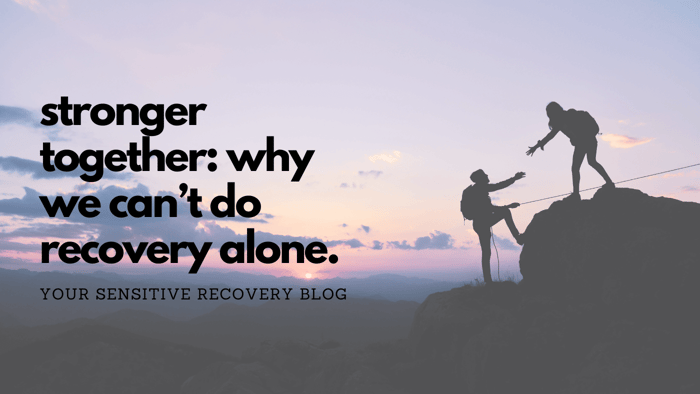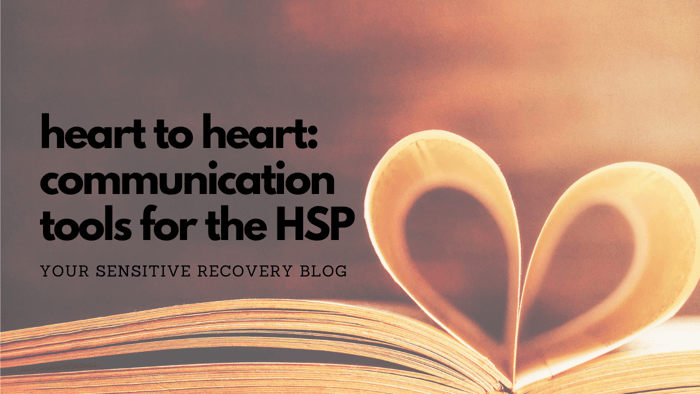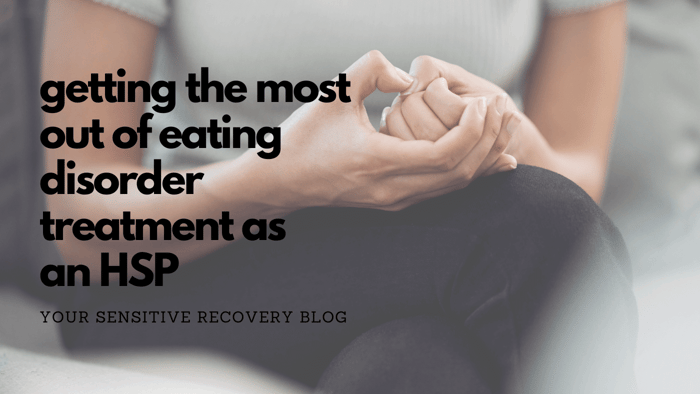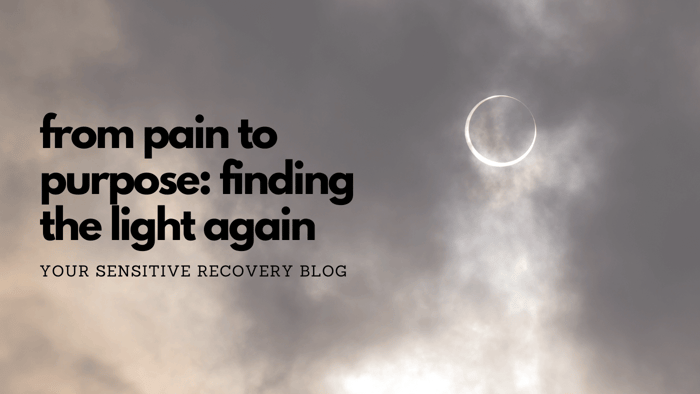Before my recovery began, there were secrets. Loads of them.
I'm not proud of it, but at the time, protecting my eating disorder was my top concern. So if protecting it meant lying and sneaking around, so be it. That was the trade-off for the promises it made (none of which were kept, by the way.)
I kept anorexia a secret for as long as I could, but somewhere in the quiet corners of my mind, I intrinsically knew that if I wanted to get better, I was not going to be able to do it on my own. I could maybe have white-knuckled my way to a partial recovery - perhaps decreasing the damaging behaviors, yet still tormented by the disordered thoughts. But I wanted more than that, and I really hoped it was possible.
If full recovery from an eating disorder is your goal, a support system is imperative.
The road to recovery from an eating disorder is filled with plenty of challenges, emotional highs and lows, and many, many moments of self-doubt. Having a network of individuals walking alongside you can provide invaluable guidance and support.
Whether friends, family members, healthcare professionals, peers, or mentors, your support system will help you navigate the complexities of recovery, offer encouragement during difficult times, and remind you that you are not on your own.
You don't have to go through recovery alone. You were never meant to.
In this blog post, we'll look at the vital role that a support system plays in your journey and how it can significantly enhance your healing process.
But I don't want anyone to know...
Sure. I get this. Eating disorders, like many other mental health struggles, are still deeply stigmatized. But this is changing - and it's only changing because people are talking about it.
Without involving other people, you're at risk of the eating disorder getting stronger. Eating disorders, much like shame, feed on silence and secrecy. When you're alone with your struggles, you're isolated in a way that you might not even be able to comprehend.
Humans are social creatures. We are wired for interdependence. There's a reason why helping other people can boost our mood.
In a way, closing yourself off to help is not only detrimental to yourself, but it's a detriment to others who love you and could benefit from your vulnerability and courage.
Keeping your struggles secret can increase feelings of overwhelm and hopelessness and your risk of relapse. The secrets can also decrease your motivation, accountability, and commitment to the healing process.
I know that reaching out is a risk. But not reaching out is a riskier risk; one that honestly can put your life in jeopardy.
3 Important Types of Support in Recovery
- Emotional Support - This form of support is really important because having an eating disorder can feel crazy-making. Emotional support can come from peers who have been through something similar and also from those who haven't. Not everyone will understand an eating disorder, but many can understand the challenging emotions that accompany one. Emotional support can look like:
- Validation, empathy, and compassion
- Decreased isolation, connection, and company
- Motivation and encouragement to carry on
- Practical Support - Just because you can do it alone doesn't mean you have to. When it comes to eating disorders, many loved ones can be at a loss for how to offer support. Practical support can be an effective way for you to receive help and care and for the people who love you to get involved - which feels good! Practical support can look like:
- Help with meal planning, grocery or clothes shopping, etc.
- Assistance finding treatment providers
- Someone to drive you to a session or meeting or even attend with you
- Professional Support - Professionals specializing in eating disorders are trained not only to help you get better but also to hold non-judgmental space for you to move through all of the stages of recovery. While we genuinely care and are invested in your success, we don't take it personally when you struggle or push back against our guidance. Knowing that usually means more honesty on your part. Professional Support can look like:
- Psychoeducation about your eating disorder and the roots of the illness
- Accountability and structure
- Holding hope for you when you're not able to
Building Your Support System
Reaching out for help is only one way of building a support system. Offering help and connecting through shared experience is another way. Below are some examples of how you might begin to build or strengthen your support system:
- Tell a trusted friend or family member about your eating disorder
- Begin therapy or nutrition therapy
- Talk to your doctor about your behaviors
- Attend a free support group
- Join an online recovery community
- Start or join a meal or snack support group
- Text or FaceTime a friend when you're struggling
- Ask a friend how they're doing when you need a distraction
- Connect with or become a recovery peer mentor
If you need help sharing the secret, check out this post for additional tips. And if you're still having a hard time opening up about your eating disorder and reaching out for help when you need it, check out my
FREE TIP SHEET: 5 Reasons You Don't Reach Out in Recovery and How to Challenge Them.
Strong social support is both a protective factor against the development of eating disorders and one of the keys to a full recovery. Your eating disorder serves a function, and one way to put it out of a job is to practice reaching out to other people rather than your eating disorder.
You can do it. And you deserve it.
✨ Josie Munroe, LMFT is a licensed therapist and owner of JosieMunroe.com and Your Sensitive Recovery As a recovered clinician and Highly Sensitive Person, she loves supporting others on their journeys to form new, empowered relationships with food, their bodies, and their sensitivity. Join the newsletter for a weekly boost of hope and inspiration. You deserve a recovery that works for you! ✨





